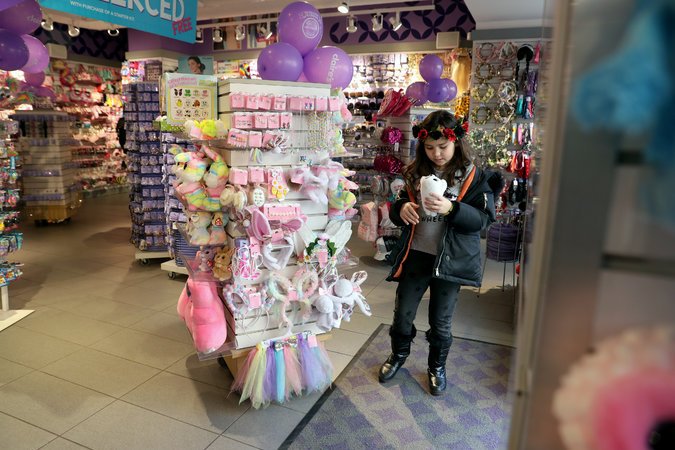
For four decades Claire’s jewelry chain has been a fixture at malls and shopping centers, piercing the ears of millions of American teenagers.
But the company, which says it has pierced more than 100 million ears worldwide, is now struggling financially, with a heavy debt burden. And like so many other retailers, it is looking for help in bankruptcy court.
On Monday, Claire’s filed for Chapter 11 bankruptcy protection in Delaware, hoping to shed $1.9 billion in debt and close some underperforming stores. The chain, which said it operates in 99 percent of American malls, selling low-priced cubic zirconia jewelry and other accessories, was purchased by the private equity firm Apollo Global Management for $3.1 billion in 2007.
Claire’s called the filing an attempt to restructure its balance sheet, not its operations. The company, which earned $29 million in profit last year and $1.3 billion in revenue, said that it was far healthier than fellow retailers that have also turned to bankruptcy — a growing list that includes mall regulars like Gymboree, the Limited and Payless Shoes.
Toys “R” Us, which often carried Claire’s products, said last week that it would liquidate or sell all of its 730 stores in the United States. Burdened with debt from a leveraged buyout in 2005, the toy giant struggled to adjust quickly enough to fast-changing consumer tastes and e-commerce encroachment.
But Claire’s, which presents itself as “A Girl’s Best Friend,” is hoping for a happier transition. The chain said that its ear-piercing business is Amazon-proof because customers must show up in person for the service.
In a regulatory filing, the company acknowledged that mall traffic is declining and that it planned to close some of its underperforming stores and renegotiate leases. The chain, which also owns the Icing brand, a jewelry chain targeting older shoppers, projected that its total store count in North America would slide to 1,400 locations in 2022 from 1,570 at the end of last year.
Claire’s said it secured $135 million in debtor-in-possession financing and support for its debt-slashing plan from top-priority debtholders like the Elliott Management and Monarch Alternative Capital hedge funds.
Apollo owns 97.7 percent of Claire’s, which had $2.1 billion in long-term debt at the end of 2017.
Claire’s said it was up-to-date with its vendor payments and had “ample liquidity.” It plans to emerge from bankruptcy in September, ahead of the crucial holiday season.
“We will complete this process as a healthier, more profitable company, which will position us to be an even stronger business partner for our suppliers, concessions partners, and franchisees,” Ron Marshall, Claire’s chief executive, said in a statement.
The bankruptcy, which Claire’s said would not disrupt store operations and would not affect its international subsidiaries, follows several drastic moves by the company in recent years to adjust its debt load and shake up its management ranks. Mr. Marshall, along with the company’s chief financial officer, has been in his role for less than two years.
The budget accessories business is a difficult one, driven by promotions and assailed by competition from online merchants, discount chains like Walmart and fast-fashion brands like H&M, said Marshal Cohen, the chief retail analyst at the NPD Group market research firm. Companies targeted by leveraged buyouts are often further constrained.
“When they get saddled with all of this debt, it really limits their ability to stay on top of the game and ahead of the curve, so they end up playing catch-up and lose their relevance in a market where relevance is critical,” he said.
But Claire’s seems strong enough to recover from bankruptcy, Mr. Cohen said.
“Claire’s at least is not behind the 8-ball yet — they can still regain momentum,” he said. “They just have to recognize that consumers have changed in a dramatic way.”
Claire’s, which is based in Hoffman Estates, Ill., traces its history to the founding of a chain of wig stores in the South in 1961. In 1973, the company blended with Claire’s Boutiques, a small accessories chain in the Midwest, creating Claire’s Stores.
The company began piercing ears in 1978. Last year, in the United States, it performed the service 3.5 million times.

